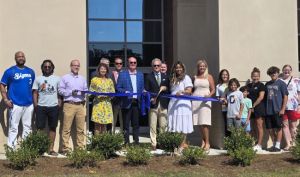Ole Miss Pharmacy School and diabetes patients collaborate on research
Published 9:52 am Friday, August 4, 2017
By Sydney Slotkin DuPriest
University of Mississippi
Capping off nearly a year of discussions with people who have diabetes and diabetes stakeholders across the state, researchers from the University of Mississippi School of Pharmacy invited them all to a meeting in Oxford to generate diabetes research questions as part of a research initiative.
Trending
Researchers involved in the project, called “PaRTICIpate in Diabetes Self-Management Research Collaborative: A Conference Series,” invited people with diabetes to a series of meetings throughout northern Mississippi to ask how they manage their symptoms and to help them manage their condition. All participants were invited to the culminating meeting in late June.
“The synergy of having people from all these different communities talking to one another meant that they came up with totally new and novel ideas for diabetes care,” said Meagen Rosenthal, assistant professor in the Department of Pharmacy Administration and co-lead investigator for the project.
The patients’ discussions also underscored ways in which different communities approach diabetes prevention and management. When a participant discovered that some health resources in her community were not available in another, she and others began brainstorming ways to share the resources.
At the end of the meeting, the researchers and graduate students assisting them had more than enough data and suggestions to begin narrowing down their list of research questions.
“Now that we have these questions, the next step is to figure out how we will keep the patients engaged,” said Erin Holmes, associate professor of pharmacy administration and co-lead investigator. “We want their input on what is important to them and how we can potentially work together to move these solutions forward.”
Once the questions are finalized, the researchers will present their information to clinicians and stakeholders in several Mississippi communities in hopes of partnering to leverage the research into something greater. They also will ask patients to weigh in on which questions they are most eager to see answered.
Trending
“We want the patients to be involved, start to finish, as much as they want to be,” Rosenthal said.






